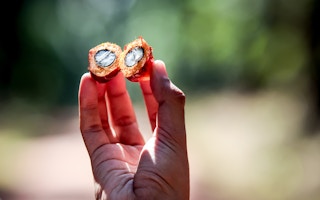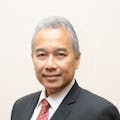Palm oil is arguably the world’s most important edible oil, providing a source of income for millions of farmers and serving as a vital, irreplaceable ingredient for the modern food and pharmaceutical industry.
Yet, palm oil remains a controversial subject, and the sector is under increasing pressure to demonstrate that it understands its supply chain and is acting on deforestation and climate change.
For someone unfamiliar with the industry, that most oil is untraceable and that many companies do not already have full knowledge about their supply chain may seem surprising, but it is reflective of the complexity of growing palm oil.
Agricultural supply chains are notoriously complex and palm oil is a prime example. The palm oil sector in Indonesia, currently the leading producer in the world, is incredibly fragmented and characterised by huge numbers of smallholders, rather than controlled by a handful of big companies.
To provide an example, a staggering 40 per cent of all palm oil estates in Indonesia is managed by some two million smallholders. And it is the mapping of those smallholders that exponentially increases the complexity of the task.
Consider next that these supply chains are based in developing countries where small farmers, and the small and medium sized companies that traditionally source from them do not have a history of direct contracts or information exchange with major FMCG firms.
At a palm oil mill, on any given day, business as usual means simply accepting palm oil fresh fruit bunch (FFB) from suppliers, weighing them and processing payment. The relationship has traditionally been based simply on providing a satisfactory product in terms of quality and price. For a growing number of suppliers this is about to change. But this will require a shift in mindset and will not happen overnight.
My company, Golden Agri-Resources (GAR), the world’s second largest palm oil grower, has become one of the first companies to promise fully traceable palm oil, mapped all the way to the plantation, because we recognise that understanding our supply chain is the best way to improve its performance.
“
This is an ongoing long-term process. But it is only through this process that the supply chain will gradually be transformed into something more resilient, productive and sustainable.
Yet this is a complex supply chain, consisting of 489 individual mills which supply over seven million tons of palm oil to our eight refinery locations across Indonesia. These mills in turn buy from a mixture of commercial plantations and individual smallholder farmers.
For the mills that we directly own, responsible for approximately 40 per cent of total supply, we already know where 90 per cent of the incoming fresh fruit bunches have been grown – our own estates and partner smallholders. We will finish mapping the remaining 10 per cent by next year.
But the expansion of our business in refining and trading adds a new layer of complexity, as it means that we have ties to 445 independent mills. It is the supply chain mapping of those mills that is going to take time, but we believe that this can be achieved in four years.
Doing this will require developing information-gathering processes that are easily replicated, efficient and cost-effective. GAR will be building on existing processes such as chain of custody documentation but the reality is that applying this to the entire supply chain including individual farmers will be new to the industry and GAR will have to work closely with its suppliers to develop and innovate new workable processes.
Inevitably, there will be a certain amount of trial and error and this will again take time to accomplish properly.
Translating this information into a responsible and ethical supply chain is the next stage.
Our Social and Environmental Policy applies to our entire supply chain. Undertaking this mapping exercise is a move towards fulfilling our commitment to extend that policy to our supply chain. Nor is this a move to wash our hands of responsibility, by simply informing the independent mills of what we want, and leaving them to work out the details.
Instead, through the process of mapping, we will be carrying out intensive and extensive engagement with all our suppliers, including smallholders - this is the most significant and rewarding part of the endeavour. Traceability is ultimately only an enabler – its true value lies in the process of engagement, of really getting to know and understand every part of the supply chain.
We are trying to bring our suppliers along with us, change behaviour and raise the standards in our supply chain through active support, training and sharing of best management practices.
We have already begun to design training programmes to help our supplier mills tackle both specific and systemic problems including such things as helping smallholders with legal permits, yield improvement and better awareness of responsible practices and how to implement them.
We also have processes and procedures in place to reach out to suppliers who are facing problems, including conducting site visits and helping them with remedial action plans. These actions are tracked and documented publicly on GAR’s Sustainability Dashboard.
As we roll out the mapping of our supply chain further, GAR and its supplier mills will be better able to design, test and refine ways to help individual farmers adopt more responsible palm oil production practices. This is an ongoing long-term process. But it is only through this process that the supply chain will gradually be transformed into something more resilient, productive and sustainable.
Indeed, one could say that a quiet revolution has begun as the industry pursues the goal of fully traceable palm oil.
Agus Purnomo is the managing director of sustainability for Golden-Agri Resources.


















